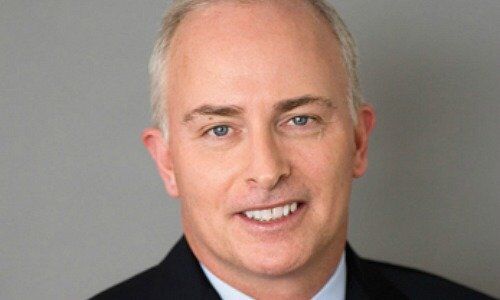The Swiss bank was on the brink of selling its American brokerage arm – and then gave it to Robert «Bob» McCann to fix. The industry veteran is now leaving the wealth manager.
Oswald Gruebel had lured Robert «Bob» McCann to UBS in 2009 – at the height of the Swiss wealth manager's losses from the financial crisis of 2008/09 and a bitter tax battle with U.S. prosecutors. The long-time Merrill Lynch banker was poached to see what could be salvaged from the wreckage of its U.S. business and whip it into shape.
McCann, who was given UBS stock worth $10 million at the time to forfeit his Merrill Lynch awards, is leaving the Swiss bank after more than a decade, «Bloomberg» reported overnight. The 62-year-old is leaving to «consider the next chapter,» CEO Sergio Ermotti and Americas boss Tom Naratil said in a memo. He was most recently chairman of UBS in the Americas.
Credited With Reversal
He won't be replaced directly – an indication equally of UBS' inability to replace him as well as the handover four years ago to Naratil, who co-runs UBS' flagship $2.6 trillion wealth unit with Swiss banker Iqbal Khan – in 2016. He remained a strong presence in the business even after leaving UBS' top management and is widely credited with putting to bed speculation the U.S. brokerage could be sold.
McCann's biggest achievement for the U.S. unit, born from the $12 billion acquisition of Chicago's Paine Webber in 2000, is sharpening profitability by winnowing its broker force compared to industry giants like Morgan Stanley, focusing on larger clients, slashing costs, and adding more lucrative services like Lombard loans.
U.S. Cultural Divide
UBS lost 265 brokers in the last year, «Advisor Hub» reported this week: a reflection of its disinterest in replacing less productive brokers with advisers who can produce $10 million in annual fees, the specialty outlet said. U.S. advisers take a cut of what they sell to clients, while private bankers elsewhere are paid on metrics such as net new money, for example.
North American brokerages like UBS traditionally accept clients with $100,000 in funds, where wealth management clients elsewhere typically need at least $1 million in assets to get in the door. A 2018 megamerger under Naratil and Khan's predecessor, Martin Blessing, represented an attempt to bridge the huge cultural and strategic divide between the two.































